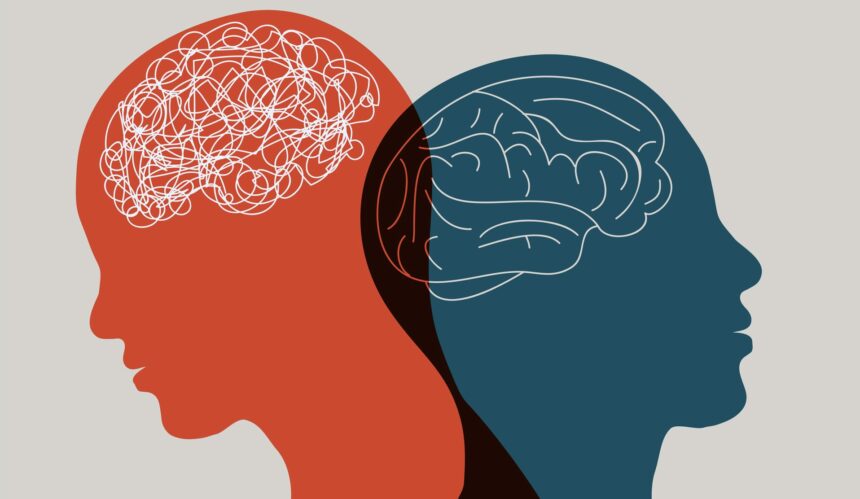Introduction
Substance abuse is one of the leading global health concerns, affecting millions of people across all age groups. While its physical consequences are widely recognized, its impact on mental health is equally severe and often underestimated. Drugs, alcohol, and other addictive substances alter brain chemistry, leading to long-term psychological problems such as depression, anxiety, psychosis, and increased risk of suicide. Understanding the connection between substance abuse and mental health is essential for prevention, early intervention, and recovery.
The Link Between Substance Abuse and Mental Health
Brain Chemistry Disruption
Substances such as alcohol, opioids, and stimulants alter neurotransmitters like dopamine and serotonin. These chemicals regulate mood, reward, and motivation. Over time, substance abuse causes imbalance, resulting in mood swings, depression, or aggression.
The Cycle of Addiction and Mental Illness
- Mental health disorders may lead individuals to misuse substances as a coping mechanism.
- Prolonged substance use worsens mental health, creating a vicious cycle.
- This condition is called a dual diagnosis (when substance abuse and mental illness occur together).
Risk Factors for Co-occurrence
- Family history of mental illness or addiction
- Chronic stress and trauma
- Lack of social support
- Early exposure to drugs or alcohol
Common Mental Health Effects of Substance Abuse
1. Depression
Alcohol and drug abuse are strongly linked with depressive disorders. While substances may provide temporary relief, they ultimately worsen depressive symptoms.
2. Anxiety Disorders
Stimulants like cocaine and methamphetamines can trigger panic attacks and chronic anxiety. Withdrawal symptoms also heighten restlessness and fear.
3. Psychosis
Certain drugs, including hallucinogens and high doses of cannabis, can cause hallucinations, paranoia, and psychotic episodes.
4. Increased Suicide Risk
Substance abuse impairs judgment and heightens impulsivity, significantly raising the risk of suicidal thoughts and behaviors.
5. Cognitive Decline
Long-term substance abuse damages memory, concentration, and decision-making abilities, leading to poor academic or workplace performance.
Substances Commonly Linked to Mental Health Issues
| Substance | Mental Health Impact |
|---|---|
| Alcohol | Depression, aggression, suicide risk |
| Opioids (heroin, prescription painkillers) | Anxiety, depression, impaired cognition |
| Stimulants (cocaine, meth) | Anxiety, paranoia, psychosis |
| Cannabis | Memory loss, anxiety, risk of psychosis in vulnerable individuals |
| Hallucinogens | Hallucinations, mood disorders, flashbacks |
How to Address Substance Abuse and Mental Health
1. Integrated Treatment
Treatment should focus on both substance abuse and mental health issues together, rather than separately.
2. Therapy and Counseling
- Cognitive Behavioral Therapy (CBT): Helps manage negative thought patterns.
- Motivational Interviewing (MI): Encourages behavioral change.
- Group Therapy: Provides support and shared experiences.
3. Medication
Certain psychiatric medications can help stabilize mood and reduce cravings, but must be used under medical supervision.
4. Lifestyle Changes
- Healthy diet and exercise improve mood and brain function.
- Mindfulness and meditation reduce stress and anxiety.
- Building strong social connections supports long-term recovery.
Prevention Strategies
- Education and Awareness: Teaching youth about risks of drug use.
- Supportive Environments: Workplaces and schools that promote healthy coping strategies.
- Early Intervention: Identifying signs of substance misuse early to prevent long-term damage.
Conclusion
Substance abuse and mental health are deeply interconnected. While drugs and alcohol may provide short-term relief, they often worsen mental health in the long run, leading to severe disorders such as depression, anxiety, and psychosis. Recovery is possible with integrated treatment, therapy, and lifestyle changes. By understanding this connection, society can reduce stigma, encourage treatment, and support those struggling with both addiction and mental health challenges.
FAQs
Q1. Can substance abuse cause permanent mental health issues?
Yes, long-term abuse can cause lasting damage to brain chemistry, leading to chronic depression, anxiety, or psychosis.
Q2. What is dual diagnosis?
It refers to the co-occurrence of a mental health disorder and a substance use disorder in the same individual.
Q3. Is alcohol more harmful to mental health than drugs?
Both can be harmful. Alcohol is strongly linked to depression and suicide, while drugs like cocaine or meth trigger paranoia and psychosis.
Q4. How can families help someone with substance abuse?
By offering support, encouraging treatment, and avoiding enabling behaviors such as covering up or excusing substance use.
Q5. Can therapy alone cure substance abuse-related mental health issues?
Therapy is highly effective, but recovery often requires a combination of counseling, medical treatment, and lifestyle changes.

